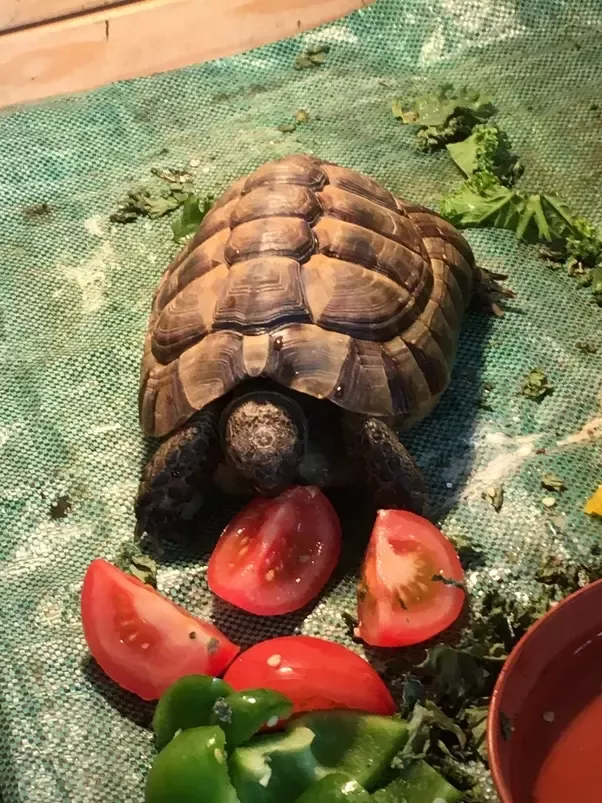
When feeding grapes to turtles, it is crucial to remove the seeds and cut them into small, bite-sized pieces. This reduces the risk of choking and ensures that the grapes are easily digestible. Additionally, it is advisable to wash the grapes thoroughly to remove any pesticide residue that could be harmful to turtles.
Remember to always consult with a reptile veterinarian or a knowledgeable expert about the specific dietary needs of your turtle. While grapes can be a fun and tasty addition to their diet, they should never be the sole food source. A well-balanced diet consisting of a variety of fruits, vegetables, and proteins is essential for the health and well-being of turtles.
Are Grapes Safe for Turtles?
Turtles are omnivorous creatures, meaning they eat both plants and animals. While they primarily feed on aquatic plants, they do consume fruits and vegetables as well. Grapes fall into the category of fruits and can be a tempting treat for turtles.
Can turtles eat grapes?
Turtles have specific dietary requirements that must be met in order for them to stay healthy. While grapes can be offered as an occasional treat, they should not make up a significant portion of a turtle’s diet. Turtles need a variety of foods to ensure they receive the proper balance of nutrients.
Feeding grapes to turtles
If you decide to feed grapes to your turtle as an occasional treat, there are a few things to keep in mind:
- Choose ripe grapes that are free from any pesticides or chemicals.
- Wash the grapes thoroughly before feeding them to your turtle.
- Cut the grapes into small, bite-sized pieces that are easy for the turtle to eat.
- Offer the grapes as part of a balanced diet, along with other foods that fulfill the turtle’s nutritional needs.
Nutritional Content of Grapes
Grapes are a fruit that is rich in nutrients and can be a healthy addition to a turtle’s diet. They contain various vitamins and minerals that are beneficial for turtles, including:
- Vitamin C: Grapes are a good source of vitamin C, which helps boost the immune system and promote overall health in turtles. This vitamin also plays a role in the growth and repair of tissues.
- Vitamin K: Grapes also contain vitamin K, which is essential for blood clotting and helps maintain bone health.
- Fiber: Grapes are high in fiber, which aids digestion and helps prevent constipation in turtles.
- Antioxidants: Grapes are rich in antioxidants, such as resveratrol, which can help protect cells from damage caused by free radicals.
- Water: Grapes have a high water content, which helps keep turtles hydrated.
Overall, while grapes can be a nutritious treat for turtles, they should not be the main component of their diet. It is best to offer a variety of foods to ensure turtles receive a balanced and diverse diet.
Potential Health Risks
While turtles can eat grapes, there are potential health risks associated with feeding them this fruit. Grapes contain a high amount of sugar, which can lead to obesity and other health problems in turtles if consumed in excess. Additionally, grapes have a low calcium to phosphorus ratio, which is not ideal for the overall health and development of turtles.
Another potential risk of feeding grapes to turtles is the presence of pesticides or other chemicals on the skin of the fruit. These substances can be harmful to turtles and may cause digestive issues or even poisoning.
Furthermore, turtles have a unique digestive system that is optimized for consuming a specific diet. Their stomachs are not designed to efficiently break down and process fruits like grapes. This can result in digestive problems such as diarrhea or constipation.
The Digestive System of Turtles
The digestive system of turtles begins with their mouth. They have a horny beak that they use to bite and tear their food. Once they have taken a bite of grapes, they use their powerful jaw muscles to grind the food into smaller pieces, making it easier to swallow and digest.
In the small intestine, the nutrients in the grapes are absorbed into the turtle’s bloodstream. This is where the majority of the digestion and absorption of nutrients takes place. The small intestine is lined with tiny finger-like projections called villi, which increase the surface area and enhance nutrient absorption.
Any remaining indigestible material from the grapes then enters the large intestine. Here, water is absorbed, and the waste material is formed into solid feces. The feces are expelled through the turtle’s cloaca, which is the opening that serves as both the exit for waste and the reproductive system.
Suitable Diet for Turtles
Grapes can be an occasional treat for turtles, but they should not make up a significant portion of their diet. Turtles are omnivores, which means they eat both plants and animals. Their natural diet consists of a variety of vegetables, fruits, insects, and even small fish.
Leafy greens like lettuce, kale, and spinach should be a staple in a turtle’s diet. These vegetables provide essential nutrients such as fiber, vitamins, and minerals. In addition to leafy greens, turtles can also eat other vegetables like carrots, bell peppers, and squash.
Turtles also require a source of protein in their diet. This can be obtained from insects like crickets, mealworms, and earthworms. Some turtles may also eat small fish or commercial turtle pellets that are specifically formulated to meet their nutritional needs.
Conclusion

Alternatives to Grapes for Turtles: What Can Turtles Eat?

1. Leafy Green Vegetables
2. Vegetables High in Calcium
Turtles require calcium for proper shell development and overall health. Vegetables such as broccoli, bok choy, and dandelion greens are high in calcium and can be included in their diet. These vegetables should also be chopped into small, manageable pieces for turtles to easily consume.
3. Fruits
While grapes should be given in moderation, there are other fruits that turtles can safely eat. These include strawberries, melons, and bananas. Fruits should be chopped into small pieces to prevent choking hazards and make them easier to eat.
4. Commercial Turtle Food
Commercial turtle food is specially formulated to provide turtles with the nutrients they need. It is available in both pellet and stick form and should be soaked in water before feeding to make it easier for turtles to consume. Choose a high-quality brand that is specifically designed for turtles.
5. Insects and Protein

I’m Lena Adams—a product of an unconventional upbringing in the African wilderness. My father, a daring explorer of African wildlife, sparked my fascination with reptiles, a passion that intertwined with the tragic loss of my mother during an expedition, leaving an indelible mark on my life. Driven to understand the creatures that captivated my parents, I embarked on my journey, sharing insights about reptiles, frogs, and lizards on my website. Through my explorations and conservation efforts, I honour my family’s legacy while seeking connections—to the creatures, nature, and the mother whose presence I yearn to understand.
